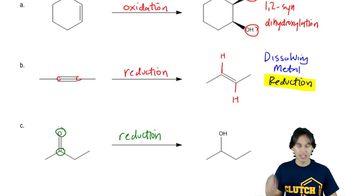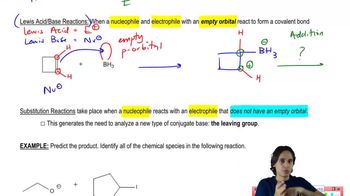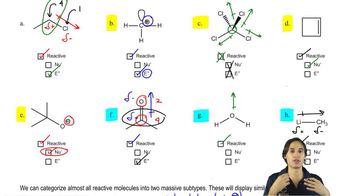Draw the products of the following reactions. Indicate whether each reaction is an oxidation or a reduction.
e.

 Verified step by step guidance
Verified step by step guidance Verified video answer for a similar problem:
Verified video answer for a similar problem:



 6:02m
6:02mMaster General Features of Redox with a bite sized video explanation from Johnny
Start learning